 Technology peripherals
Technology peripherals AI
AI OpenAI professionally poached nearly 100 bosses! Major companies such as Google and Meta have become 'reserve talent pools'
OpenAI professionally poached nearly 100 bosses! Major companies such as Google and Meta have become 'reserve talent pools'ChatGPT became an instant hit, completely breaking openAI, a startup company. In just 5 days, the number of registered users worldwide exceeded 1 million, and its popularity remains unabated to this day.
But why did OpenAI make ChatGPT? What are the backgrounds of OpenAI’s employees?

In the battle to grab people, openAI wins
According to the foreign media Leadgenious Punks & Pinstripes’ analysis of the backgrounds of the current 736 OpenAI employees, it can be found: Almost all of OpenAI's core talent comes from large technology companies.
Among them, 59 people previously worked at Google, followed by Meta (34 people), Apple (15 people), Dropbox (14 people), and Amazon (11 people).

Among OpenAI’s employees, 389 have worked at hardware or software companies; 39 are from the financial services industry, including JPMorgan Chase (7 foreign employees) , Robin Hood (5 people) and UBS (3 people).
OpenAI has already won the battle for technical talents.
LeadGenius’ research results also sound a “talent alarm” for large technology companies. Those large technology companies, especially Google, do not pay enough attention to their employees.
Many of those who have resigned from Google are developing secondary products in innovation laboratories (such as Alphabet X), which means that they basically cannot see the impact of their work on the company. have a meaningful impact on your core product or revenue.
And openAI can give them this opportunity.
In addition, OpenAI has recruited 39 financial employees, far exceeding industry expectations. Does it mean that OpenAI’s next move is to “challenge the financial services industry”?
Lisa Wardlaw, president and founder of 360 Digital Immersion, said, "It's too early to tell, but they do provide a viable option for Wall Street talents looking for new options."
In the era when Mark Zuckerberg founded Facebook, you only needed a college dormitory or a garage to start a world-class company; and OpenAI's success was "poaching" from large companies.
Google: OpenAI’s reserve talent pool
As early as last November, in the blog post published by ChatGPT, the names of five Google employees can be found in the acknowledgments section: Barret Zoph, Liam Fedus, Luke Metz , Jacob Menick, Rapha Gontijo Lope

LinkedIn shows that Barret Zoph left Google Brain in August 2022 and joined OpenAI to participate in the creation of ChatGPT. His main research direction is training large sparse Language models and AuoML, such as Neural Architecture Search (NAS).

Liam Fedus joined Google Brain in 2018 and OpenAI around September 2022. During his doctoral studies at the University of Montreal, his mentor was Turing Award winner Yoshua Bengio. His research direction was horizontal. Across supervised, unsupervised and reinforcement learning.

Luke Metz joined Google Brain in 2016 as a senior research scientist. Currently, his LinkedIn and Twitter profiles do not show that he has joined OpenAI.

Jacob Menick joined DeepMind in September 2015 and OpenAI as a researcher in September 2022. He graduated with a Ph.D. from University College London. His main research directions are machine learning, generative patterns, large-scale deep learning, and variation. Reasoning, information theory, and sparse models.

Rapha Gontijo Lope graduated from the Georgia Institute of Technology in June 2018, and then joined Google Brain, during which he participated in the two-year Google AI residency program in 2022 Joined OpenAI in September

But the biggest boss is Ilya Sutskever, the co-founder and chief scientist of OpenAI. He graduated from the University of Toronto in 2005 and received a PhD in computer science in 2012. Bachelor of Science.

Since graduation, he has worked at Stanford University, DNNResearch, and Google Brain, engaged in research related to machine learning and deep learning. In 2015, he gave up his high-paying position at Google to work with Greg Brockman and others jointly founded OpenAI, where they led the development of GPT-1, 2, 3 and DALLE series models.
Google is still too afraid of risks
Most of the employees mentioned above have worked at Google Brain. Some employees said in interviews that the work culture of Google Brain is really disappointing. In addition to the uncomfortable bureaucracy and overly cautious approach to new product proposals, many employees thought about leaving.
In addition, some employees complained that they once suggested that the company should add a conversation function to the search engine, but no one paid attention to it at all.
However, Google Brain is still full of talents, and there are still more than 800 top scientists from all over the world.
In addition, AppSheet founder Praveen Seshadri also published a blog after leaving Google. He believed that Google was trapped in a maze, and employees wasted a lot of energy on approvals, startup processes, and legal matters. There is very little that can actually be done about evaluations, performance reviews, execution reviews, documentation, meetings, bug reports, triage, OKRs, H1 plans, subsequent H2 plans, all-hands summits, and reorganizations.

Especially in the face of the encirclement and suppression of OpenAI and Microsoft, Google not only faces technical pressure, but also faces major layoffs and other issues, which to some extent reflects the management and employees There is a general lack of self-awareness.
The biggest problem still lies in Google’s core culture:
- No mission (no mission)
- No sense of urgency (no urgency)
- delusionsofexceptionalism
- mismanagement
Although Google's two core values are "respect for users" and "respect for opportunities", in practice , these systems and processes are intentionally designed to "respect risk."
Risk mitigation trumps everything, and if everything goes well, the most important thing is to avoid problems and move forward with growing ad revenue:
- Changed Every line of code is risky, so a lot of intermediate processes are needed to ensure that every code change is perfectly risk-free; anything released is risky, so there is a lot of review and approval , even just releasing a small change on a small product;
- Any decision that is not obvious is a risk and needs to be decided jointly by the group;
- Any way of doing things that is different from the past is a risk , so stick to your original ways;
- Any employee who is dissatisfied with you is a career risk, so managers aim for 100% employee satisfaction and treat even the worst-performing employees with caution;
- Any disagreement with the management chain is a career risk, so be sure to comply with your superiors;
- If the focus shifts to value creation, everything will become different, such as Ask yourself every day, "Who did I create value for today?" If you can create more value and have a greater impact, employees will work harder.
In the early years, Google frantically poached corners of major companies such as Meta to expand its own talent resources in the "war for talent". Now it has become OpenAI's reserve talent pool.
No wonder Google sounded a "red alert" after ChatGPT became popular. If it doesn't pay attention to the protection of talents, sooner or later all the senior researchers it has trained will be poached!
Reference materials:
https://www.php.cn/link/2287c6b8641dd2d21ab050eb9ff795f3The above is the detailed content of OpenAI professionally poached nearly 100 bosses! Major companies such as Google and Meta have become 'reserve talent pools'. For more information, please follow other related articles on the PHP Chinese website!
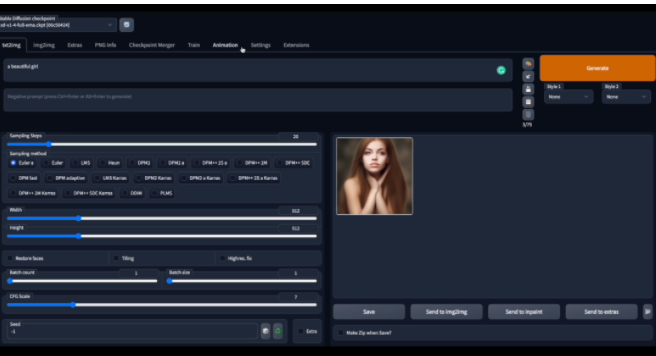 令人惊艳的4个ChatGPT项目,开源了!Mar 30, 2023 pm 02:11 PM
令人惊艳的4个ChatGPT项目,开源了!Mar 30, 2023 pm 02:11 PM自从 ChatGPT、Stable Diffusion 发布以来,各种相关开源项目百花齐放,着实让人应接不暇。今天,着重挑选几个优质的开源项目分享给大家,对我们的日常工作、学习生活,都会有很大的帮助。
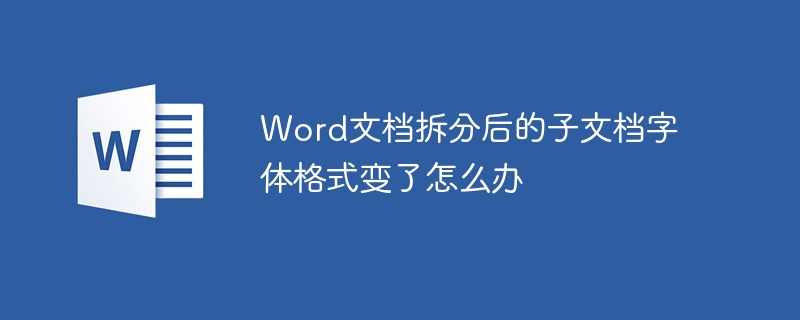 Word文档拆分后的子文档字体格式变了怎么办Feb 07, 2023 am 11:40 AM
Word文档拆分后的子文档字体格式变了怎么办Feb 07, 2023 am 11:40 AMWord文档拆分后的子文档字体格式变了的解决办法:1、在大纲模式拆分文档前,先选中正文内容创建一个新的样式,给样式取一个与众不同的名字;2、选中第二段正文内容,通过选择相似文本的功能将剩余正文内容全部设置为新建样式格式;3、进入大纲模式进行文档拆分,操作完成后打开子文档,正文字体格式就是拆分前新建的样式内容。
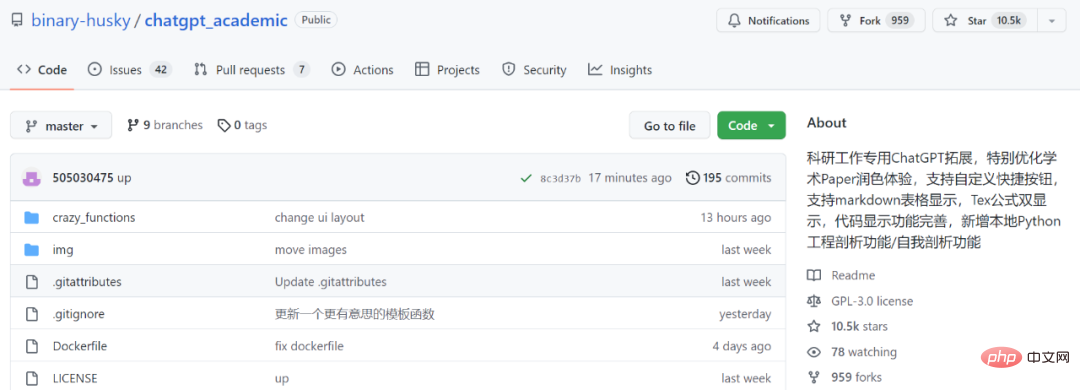 学术专用版ChatGPT火了,一键完成论文润色、代码解释、报告生成Apr 04, 2023 pm 01:05 PM
学术专用版ChatGPT火了,一键完成论文润色、代码解释、报告生成Apr 04, 2023 pm 01:05 PM用 ChatGPT 辅助写论文这件事,越来越靠谱了。 ChatGPT 发布以来,各个领域的从业者都在探索 ChatGPT 的应用前景,挖掘它的潜力。其中,学术文本的理解与编辑是一种极具挑战性的应用场景,因为学术文本需要较高的专业性、严谨性等,有时还需要处理公式、代码、图谱等特殊的内容格式。现在,一个名为「ChatGPT 学术优化(chatgpt_academic)」的新项目在 GitHub 上爆火,上线几天就在 GitHub 上狂揽上万 Star。项目地址:https://github.com/
 30行Python代码就可以调用ChatGPT API总结论文的主要内容Apr 04, 2023 pm 12:05 PM
30行Python代码就可以调用ChatGPT API总结论文的主要内容Apr 04, 2023 pm 12:05 PM阅读论文可以说是我们的日常工作之一,论文的数量太多,我们如何快速阅读归纳呢?自从ChatGPT出现以后,有很多阅读论文的服务可以使用。其实使用ChatGPT API非常简单,我们只用30行python代码就可以在本地搭建一个自己的应用。 阅读论文可以说是我们的日常工作之一,论文的数量太多,我们如何快速阅读归纳呢?自从ChatGPT出现以后,有很多阅读论文的服务可以使用。其实使用ChatGPT API非常简单,我们只用30行python代码就可以在本地搭建一个自己的应用。使用 Python 和 C
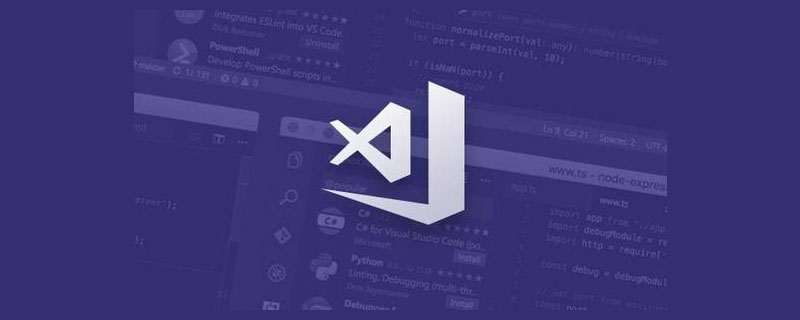 vscode配置中文插件,带你无需注册体验ChatGPT!Dec 16, 2022 pm 07:51 PM
vscode配置中文插件,带你无需注册体验ChatGPT!Dec 16, 2022 pm 07:51 PM面对一夜爆火的 ChatGPT ,我最终也没抵得住诱惑,决定体验一下,不过这玩意要注册需要外国手机号以及科学上网,将许多人拦在门外,本篇博客将体验当下爆火的 ChatGPT 以及无需注册和科学上网,拿来即用的 ChatGPT 使用攻略,快来试试吧!
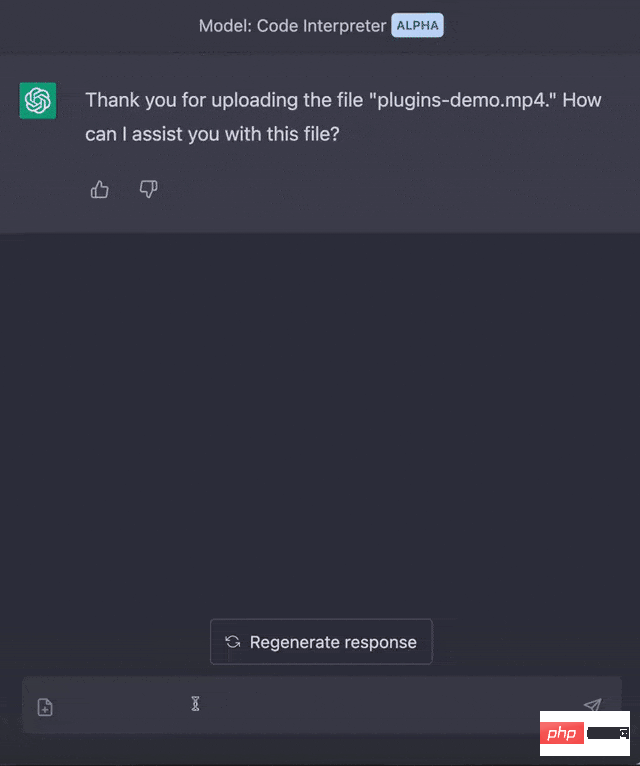 用ChatGPT秒建大模型!OpenAI全新插件杀疯了,接入代码解释器一键getApr 04, 2023 am 11:30 AM
用ChatGPT秒建大模型!OpenAI全新插件杀疯了,接入代码解释器一键getApr 04, 2023 am 11:30 AMChatGPT可以联网后,OpenAI还火速介绍了一款代码生成器,在这个插件的加持下,ChatGPT甚至可以自己生成机器学习模型了。 上周五,OpenAI刚刚宣布了惊爆的消息,ChatGPT可以联网,接入第三方插件了!而除了第三方插件,OpenAI也介绍了一款自家的插件「代码解释器」,并给出了几个特别的用例:解决定量和定性的数学问题;进行数据分析和可视化;快速转换文件格式。此外,Greg Brockman演示了ChatGPT还可以对上传视频文件进行处理。而一位叫Andrew Mayne的畅销作
 ChatGPT教我学习PHP中AOP的实现(附代码)Mar 30, 2023 am 10:45 AM
ChatGPT教我学习PHP中AOP的实现(附代码)Mar 30, 2023 am 10:45 AM本篇文章给大家带来了关于php的相关知识,其中主要介绍了我是怎么用ChatGPT学习PHP中AOP的实现,感兴趣的朋友下面一起来看一下吧,希望对大家有帮助。


Hot AI Tools

Undresser.AI Undress
AI-powered app for creating realistic nude photos

AI Clothes Remover
Online AI tool for removing clothes from photos.

Undress AI Tool
Undress images for free

Clothoff.io
AI clothes remover

AI Hentai Generator
Generate AI Hentai for free.

Hot Article

Hot Tools

PhpStorm Mac version
The latest (2018.2.1) professional PHP integrated development tool

VSCode Windows 64-bit Download
A free and powerful IDE editor launched by Microsoft

WebStorm Mac version
Useful JavaScript development tools

Dreamweaver CS6
Visual web development tools

SublimeText3 Mac version
God-level code editing software (SublimeText3)







